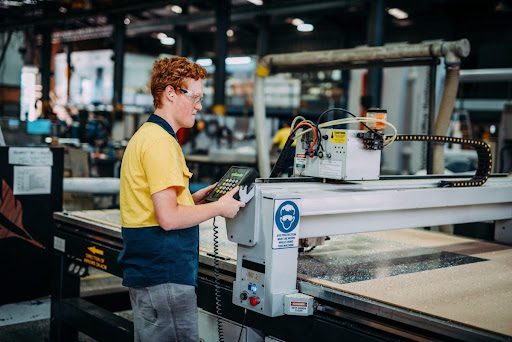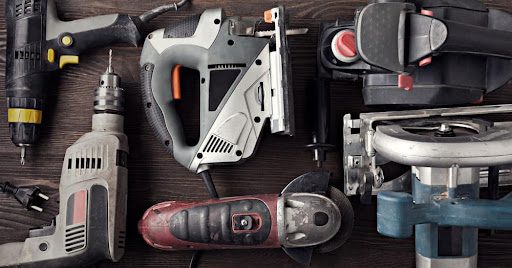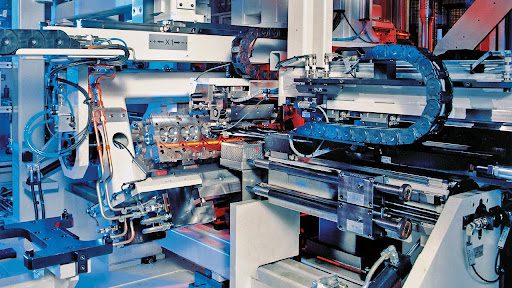
10 tips for maintaining your industrial equipment
Last Updated on September 27, 2022 by Andrew
Intro: ‘Industrial equipment’ refers to machines or tools used for manufacturing or production purposes. Proper care and maintenance of this equipment are crucial for ensuring efficient operations. Maintaining your industrial equipment is essential for keeping it functioning correctly and safely. This blog post will provide 10 tips for maintaining your industrial equipment. Remember that some of these tips may not apply to all types of industrial equipment, so please read the manufacturer’s manual carefully. We hope you find these tips helpful!
1. Keep your equipment clean:
Inspect your industrial parts regularly to look for any dirt, dust, or debris build-up. Dust, dirt, and other debris can build up on your equipment, causing it to overheat or malfunction and causing it to work less efficiently. If you see any, be sure to clean it off immediately. It will help extend the life of your equipment and prevent any potential problems. Make sure to clean your equipment regularly to prevent the build-up of dirt, dust, and debris. It will help to prevent corrosion and other damage as well as extend the life of your equipment
2. Lubricate your equipment:
Lubrication is essential for keeping your equipment running smoothly and reducing wear and tear. Many types of industrial equipment require lubrication, so consult your owner’s manual to see what type of lubricant is best for your equipment. Most industrial equipment require regular lubrication to prevent them from overworking and breaking down. Check your equipment’s manual to see how often you should lubricate it and what type of lubricant to use. Lubricating your machinery regularly will help keep it running smoothly and prevent costly repairs.
3. Inspect your equipment regularly:

Inspecting it regularly is crucial for maintaining its safety and efficiency. Look for any cracks, breaks, or other damage that could cause your equipment to malfunction. If you see any damage, repair or replace the affected parts as soon as possible. Look for any signs of wear and tear or damage caused by corrosion. If you notice any problems, be sure to fix them immediately. Inspections will help you with problems early before they cause more severe damage. Look for any rust, corrosion, or other damage that could affect the equipment’s performance.
4. Store your equipment correctly:

When not in use, be sure to store your industrial equipment properly. It means keeping it in a dry, clean area free from dust and other debris. Be sure to store your industrial equipment in a safe, dry place. If possible, store it in a temperature-controlled environment. It will help prolong the life of your equipment. If possible, store your equipment in a temperature-controlled environment to help prevent damage from extreme heat or cold. Ensure your equipment is stored away from any potential ignition sources, such as sparks from welding equipment.
5. Keep a maintenance log:
Keeping a maintenance log is crucial for maintaining your industrial equipment. This log should include all information related to the care and maintenance of your equipment. It includes information such as when the equipment was last serviced, what type of maintenance was performed, and any problems encountered. It will help you keep track of your equipment’s maintenance history, identify potential issues, and ensure that it is correctly cared for.
6. Keep an inventory:
Keep track of the industrial equipment you have on hand. It will help you stay organized and ensure you have the right equipment. It will also help you track what needs to be repaired or replaced. To ensure that you have the necessary supplies to maintain your industrial equipment properly, it is essential to keep an inventory of all the parts and supplies you need. It includes items such as replacement parts, lubricants, and cleaners. You can avoid downtime due to missing or out-of-stock supplies by keeping an up-to-date inventory.
7. Follow the manufacturer’s instructions:
One of the essential tips for maintaining your industrial equipment is to follow the manufacturer’s instructions. It includes reading the manual thoroughly and understanding how to operate and maintain the equipment properly. It is also essential to follow any safety precautions outlined in the manual. Following the manufacturer’s instructions can help avoid potential problems and ensure that your equipment is used correctly. Not following the manufacturer’s instructions can void your warranty, so it is essential to be familiar with them.
8. Use the right tools and materials:

Another essential tip for maintaining your industrial equipment is to use the right tools and materials. It means using the proper lubricants, cleaners, and other fluids recommended by the manufacturer. It is also essential to use the correct size and type of tool when performing maintenance tasks. Using the wrong tool or material can damage the equipment or cause it to malfunction. It includes using the proper lubricants, cleaners, and other fluids as specified in the manual. Using the wrong products can damage your equipment or cause it to malfunction. Always check with the manufacturer before using any new products on your equipment.
9. Be careful when using chemicals:
Many industrial processes use harsh chemicals. When working with these chemicals, it is essential to take proper safety precautions. It includes wearing the appropriate protective clothing and using gloves, goggles, and other safety gear when necessary. Following the manufacturer’s instructions for safely handling and storing these chemicals is also essential. Always follow the manufacturer’s instructions when using cleaners or other chemicals. Never mix different chemicals. It can create dangerous fumes or cause a chemical reaction that could damage your equipment. Always wear protective gear when using any chemical, such as gloves, goggles, and a respirator mask.
10. Schedule regular maintenance checks:
To keep your industrial equipment functioning correctly, it is essential to schedule regular maintenance checks. These checks should be performed by a qualified technician and scheduled based on the manufacturer’s recommendations. During a regular maintenance check, a technician will inspect your equipment and its parts for any damage or wear and tear. They will also lubricate moving parts, clean debris, and test safety features. They will also test the equipment to ensure that it is functioning correctly. Depending on the type of equipment, you may need to schedule a maintenance check every month, every six months, or once a year. To keep your industrial equipment running smoothly, it is essential to have regular maintenance checks.
Conclusion: In conclusion, with these 10 tips, you can maintain your machinery correctly and keep it functioning for a more extended period. Proper care will also save you money in the long run by avoiding repairs or replacements. Also, don’t forget to read the manufacturer’s manual for specific instructions on how to care for your particular type of industrial equipment. Thanks for reading!




